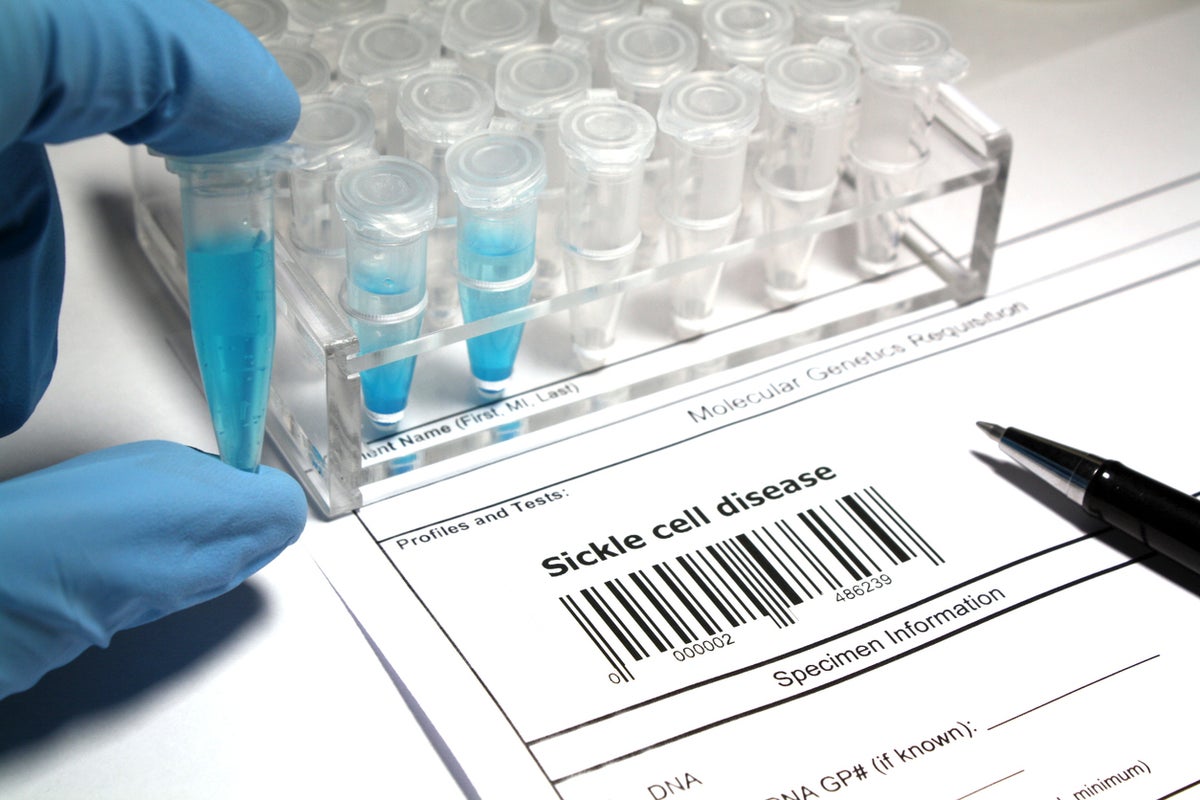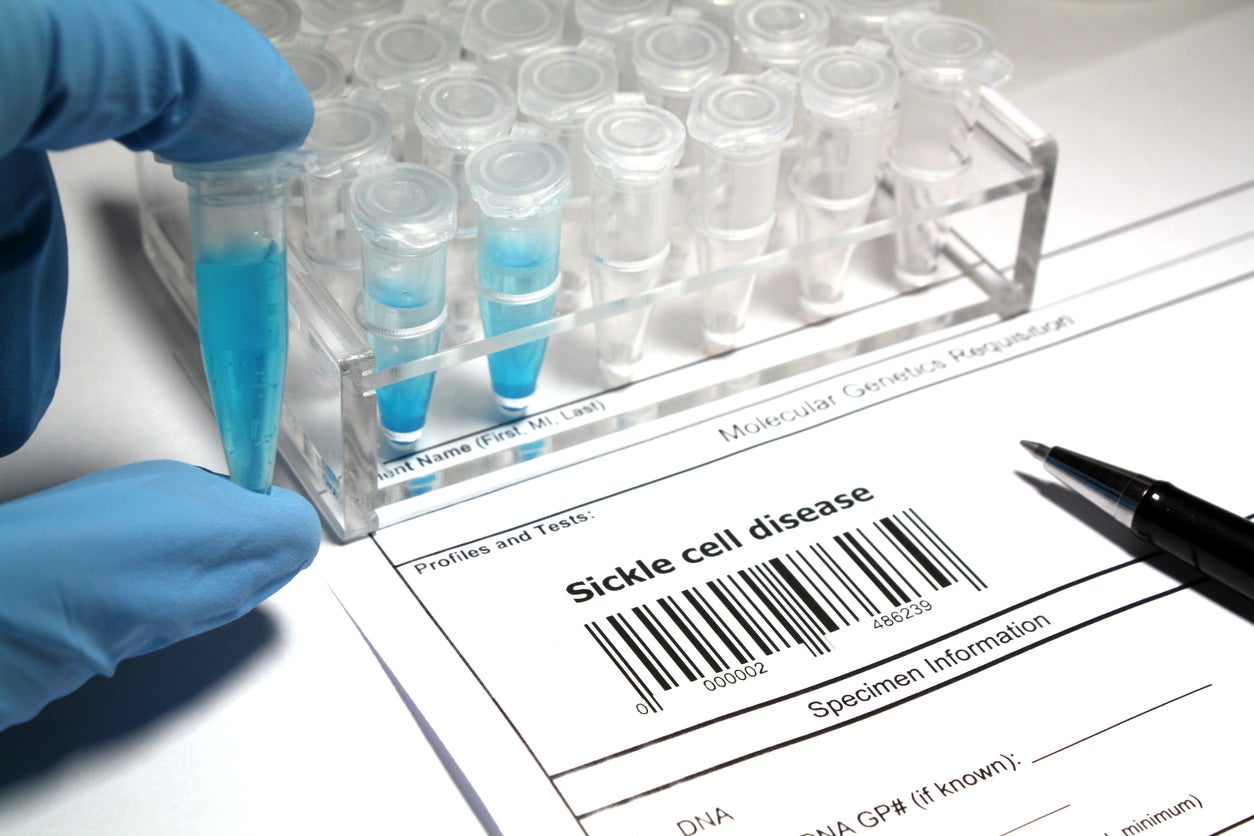
A record number of Black blood donors are needed to treat the growing number of people in the UK affected by sickle cell disease, the NHS has said.
NHS Blood and Transplant (NHSBT) is calling on people to come forward because there is “more demand for care than ever before” and that “ethnically matched blood provides the best treatment”.
It said sickle cell disease is the “fastest growing genetic condition in the UK”, with demand for blood to treat the disease rising by around 67 per cent over the past five years.
Sickle cell disease is the name for a group of inherited health conditions that affect red blood cells, the NHS says.
People with sickle cell disease produce unusually shaped red blood cells that can cause problems because they do not live as long as healthy blood cells and can block blood vessels.
It is a serious and lifelong health condition, although treatment can help manage many of the symptoms.
This can lead to “agonising crisis episodes” and potentially fatal complications including organ damage or stroke.
Many patients with sickle cell need regular blood transfusions to stay alive. It is particularly common among people with an African or Caribbean family background.
NHSBT said some 250 donations are required every day to help people with sickle cell, when five years ago only around 150 donations a day were needed.
It said that rising demand is being driven by increasing patient numbers, patients living longer and more people receiving “complete blood transfusions”.
At present the blood donor service is only able to provide matched blood for just over half of the hospital requests.
Other patients need to be treated with O negative, the universal blood type, which is clinically safe but in the long-term can lead to complications.
Some 55 per cent of Black people have a Ro blood type, compared to 2 per cent of the wider population.
Oyesola Oni, 39, needs all her blood replaced by donor blood every five weeks due to sickle cell disease.
The mother of one from Nottingham said: “During a sickle cell crisis it’s like someone is stabbing me, at other times it’s like something crushing my bones. It’s excruciating.
“Every few weeks the hospital needs to remove all my sickled cells and replace them with donor blood.

“The need for blood never stops, the demand keeps increasing.
“I would urge people of black heritage to step out and donate. It’s in your blood to help people like me.”
Dr Rekha Anand, consultant in transfusion medicine for NHSBT, said: “Matched blood is vital for sickle cell patients to reduce the risk of serious complications and black people are more likely to be able to donate matched blood.
“There has been a small rise in black people donating blood but we urgently need more to become regular donors.
“Giving blood is easy, quick and safe – and you will save and improve lives.”
NHS England’s director of healthcare inequalities improvement, Dr Bola Owolabi, said: “Sickle cell disproportionately affects people from a Black African or Black Caribbean background and these new figures show hospitals need more blood for people with sickle cell disease than ever before.
“I urge anyone from these communities who is able to give blood to step forward and help treat the thousands of people living with this painful hereditary condition.”
Professor Kevin Fenton, regional director for London for the Office for Health Improvement and Disparities, said: “Being able to provide high quality clinical care to sickle cell patients both saves and improves the quality of their lives and is an important step in helping tackle health inequalities.
“I urge anyone who is eligible to donate blood as this selfless act will ensure we can continue to save lives by helping those who need it most.”
Anybody who is interested in donating blood can get information via the GiveBloodNHS app or at www.blood.co.uk.







